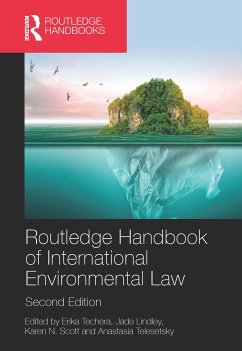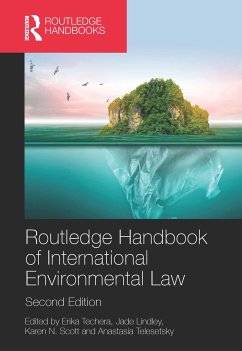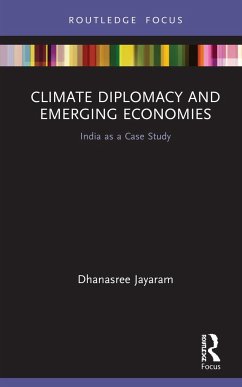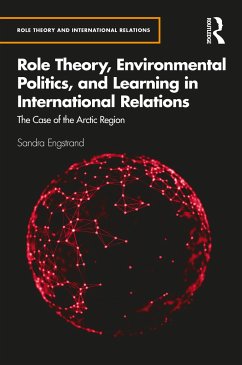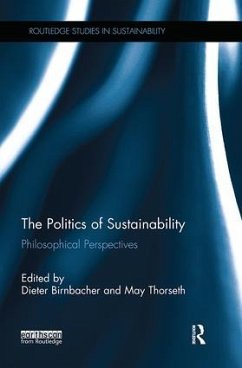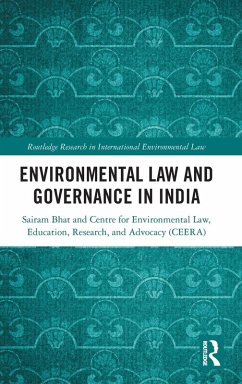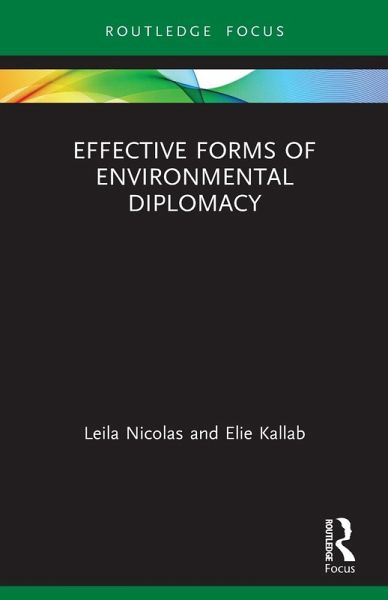
Effective Forms of Environmental Diplomacy
Versandkostenfrei!
Versandfertig in 6-10 Tagen
21,99 €
inkl. MwSt.
Weitere Ausgaben:

PAYBACK Punkte
11 °P sammeln!
This book holistically covers the issue of environmental diplomacy by building a firm foundation for readers to understand the different dimensions of the topic.The book begins by exploring the progress the world community has made in understanding the importance of diplomacy in preserving the environment for humankind's survival, peace, and security. Then, it critically analyses the existing system of international environmental treaties and highlights its political and legal gaps. It further examines specific case studies on multilateral diplomacy as well as both formal and informal diplomac...
This book holistically covers the issue of environmental diplomacy by building a firm foundation for readers to understand the different dimensions of the topic.
The book begins by exploring the progress the world community has made in understanding the importance of diplomacy in preserving the environment for humankind's survival, peace, and security. Then, it critically analyses the existing system of international environmental treaties and highlights its political and legal gaps. It further examines specific case studies on multilateral diplomacy as well as both formal and informal diplomacy in cases from Europe and the United States to evaluate the diplomatic models followed by different stakeholders in the field. Through this case study analysis, the book develops theoretical and empirical frameworks that can be applied to study how international and regional organisations and NGOs maintain and put forward environmental agendas at an international level. It also examines the effect of the COVID-19 pandemic on the environment to highlight the challenges to reach an effective and equitable environmental governance and draw conclusions around effective versus ineffective forms and tools of environmental diplomacy.
This book will be of great interest to students and scholars of environmental diplomacy and environmental law and governance, as well as practitioners working in this important field.
The book begins by exploring the progress the world community has made in understanding the importance of diplomacy in preserving the environment for humankind's survival, peace, and security. Then, it critically analyses the existing system of international environmental treaties and highlights its political and legal gaps. It further examines specific case studies on multilateral diplomacy as well as both formal and informal diplomacy in cases from Europe and the United States to evaluate the diplomatic models followed by different stakeholders in the field. Through this case study analysis, the book develops theoretical and empirical frameworks that can be applied to study how international and regional organisations and NGOs maintain and put forward environmental agendas at an international level. It also examines the effect of the COVID-19 pandemic on the environment to highlight the challenges to reach an effective and equitable environmental governance and draw conclusions around effective versus ineffective forms and tools of environmental diplomacy.
This book will be of great interest to students and scholars of environmental diplomacy and environmental law and governance, as well as practitioners working in this important field.






